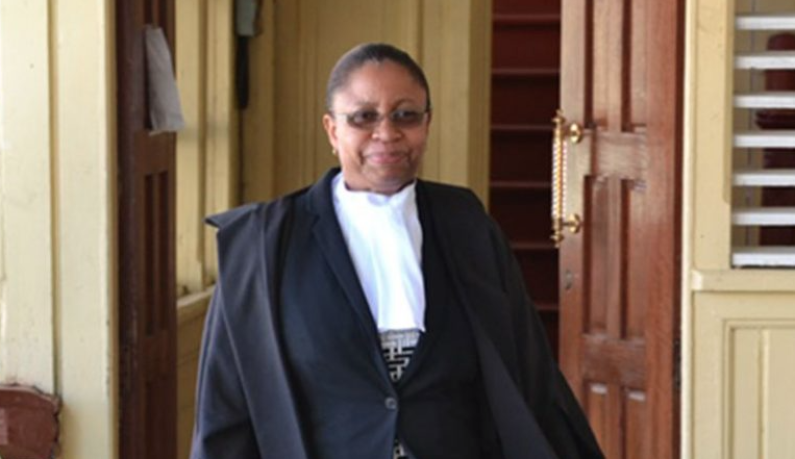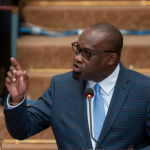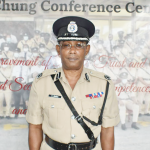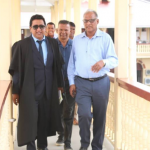
Unhappy with the ruling by Chief Justice Roxane George on the President’s unilateral appointment of Clifton Hicken as Acting Police Commissioner, the Opposition has filed an appeal in the matter.
Last week, the Chief Justice ruled that in the absence of a Leader of the Opposition and a Police Service Commission being in place at the time, the President could not be faulted for exercising his own deliberate judgement in moving forward with the appointment of an Acting Police Commissioner.
But Opposition Chief Whip, Christopher Jones is dissatisfied with the entire ruling of the Chief Justice and through his Attorney Senior Counsel Roysdale Forde, Mr. Jones’ position is that the Chief Justice erred in law when she held the position that the President of Guyana was vested with the authority to make an acting appointment to the office of Commissioner of Police, and also erred in law when she found that the President of Guyana could have acted out of necessity and exercised his own deliberate judgment pursuant.
The Constitution requires for there to be consultation and agreement between the President and the Opposition Leader on the appointment of a Police Commissioner. The same requirement is used for the appointment of an Acting Police Commissioner.
But in her ruling, the Chief Justice noted that because at the time of the appointment, there was no Opposition Leader in place, the Court could not agree with the applicant’s position that there was no consultation. Senior Counsel Forde ha also disagreed with that ruling.
“The Learned Chief Justice (ag.) erred in law when Her Honour did not find that the President’s purported exercise of the power to make an acting appointment to the office of Commissioner of Police, without consultation outside of Article 211 of Constitution, was unconstitutional as the only other power to make an appointment to the Office of Commissioner of Police was the power to make an appointment to perform the functions of the said office without compliance with the requirement of meaningful consultation under Article 232 of the Constitution,” Forde submitted in his Notice of Appeal.
In addition, Forde is contending that the Chief Justice erred in law when she found that the terms “to appoint a person to act or to perform the functions of that office” were used interchangeably and not disjunctively.
The Court of Appeal is now being asked to quash the Chief Justice’s ruling.

















You must be logged in to post a comment Login